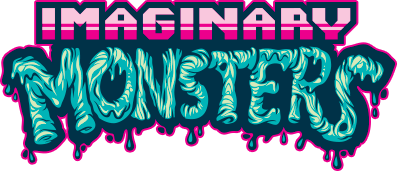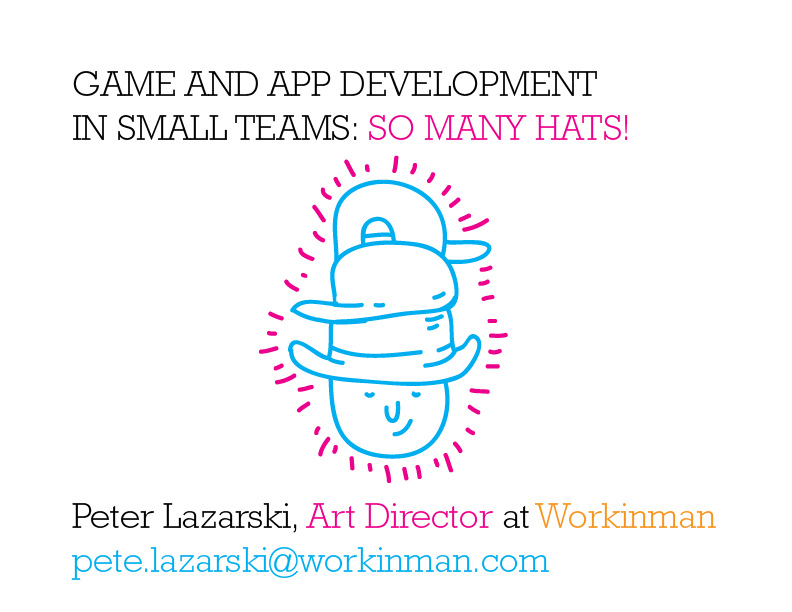Congressional App Challenge: 2015 Workshop Talk “So Many Hats!”
I’m participating in Congresswoman Slaughter’s Congressional App Challenge as a judge this year. Also I’m giving a short presentation at this weekend’s Congressional App Challenge Workshop at the RIT MAGIC Center. I decided to get the contents of my talk posted and shareable beforehand this time around so I could refer attendees to it. It’s useful stuff to discuss when it comes to creating games and apps in small teams. I wind up having many conversations around these topics with different people I meet.
I’m calling the talk Game and App Development in Small Teams: So Many Hats! since working on games and apps as an individual or in small teams means the people involved are going to be required to assume many roles in the process. I started at Workinman at 2010 when I was person #13 in the studio. Since then we’ve grown a bit to about 44 people at the time of writing this. In a sense we still feel more like a collection of small teams making games rather than a bureaucratic studio that has stark separations between departments.
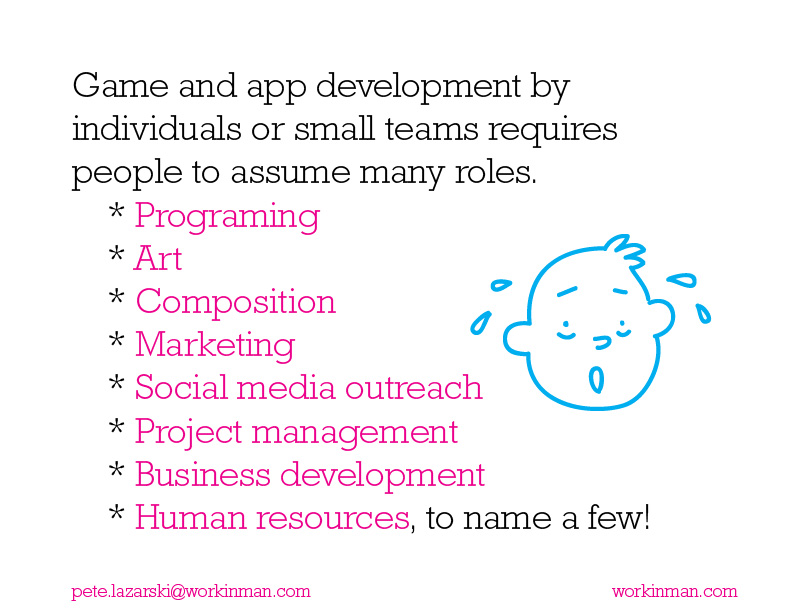
Game and app development by small teams and individuals requires people to assume many roles. Your contribution to making your product is only part of it. Beyond needing to encompass programming, art, music and sound composition in game development you also may need to consider things like marketing, social media outreach, project management, business development, and human resources to name a few (I could name more!)
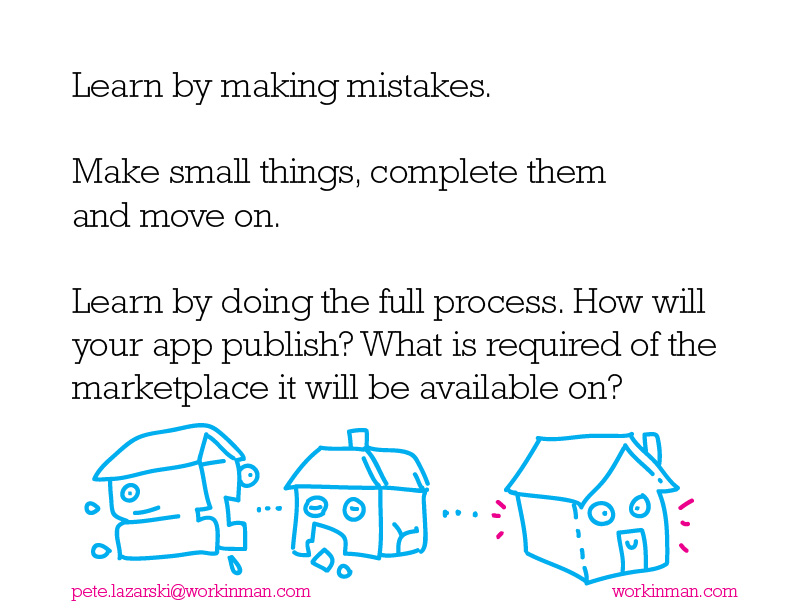
Make small things, complete them and move on. Trying to make your perfect game right out of the gates is a difficult proposition. You should try to make something as good as you can within the extend of your ability and then move on. Avoid excessive refactoring of old imperfect work. You can make something new that builds off of your cumulative knowledge.
Learn by doing the full process. How will your app publish? What is required of the marketplace it will be available on? You don’t want to be answering these questions for the first time when you’re trying to launch something giant. You can easily sort out some of these details on a smaller pilot product you attempt early on.
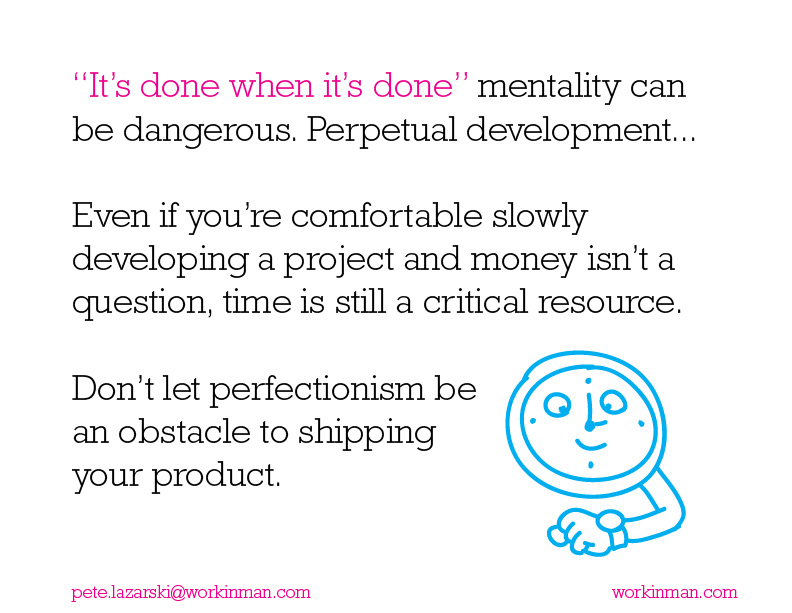
“It’s done when it’s done” mentality can be dangerous. This could lead to a feeling of perpetual development which is unsustainable outside of a hobby context.
Even if you’re comfortable slowly developing a project and money isn’t a question, appreciate that time is still a critical resource.
Don’t let perfectionism be an obstacle to shipping your product. Also consider vehicles like Early Access on Steam and open development. You can build awareness about your product during the process and engage your fan base.
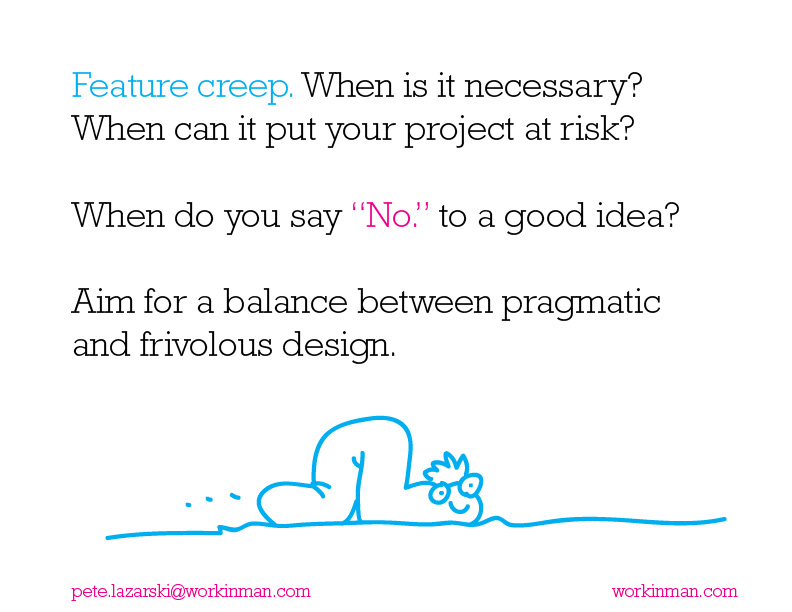
Feature creep can be necessary at times but it can also put a project at risk. Sometimes new ideas come up during development that are truly too good to pass up. Game design can evolve as it goes, but be wary about changing too much too often.
When do you say “No.” to a good idea? It requires making potentially difficult judgement calls, but sometimes you want to avoid including a good idea if it doesn’t fit the original vision of the product or would potentially throw schedules off course more than other achievable features.
Feature creep can be unavoidable and necessary at times. If you’re making games in a work for hire setting you need to satisfy your client’s needs as well as your own. Depending on the relationship here ideally you can find some compromises to move forward on.
Aim for a balance between pragmatic and frivolous design. Being inflexible in your work process can be frustrating to any partners you have. Also going too far “off the rails” chasing fun ideas can put everyone’s work at risk.
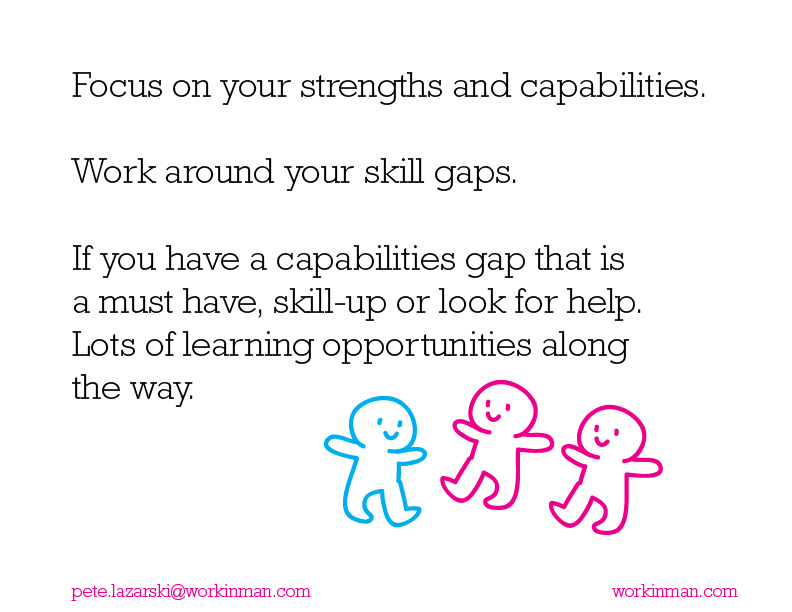
So how do you approach working in development when it can be intimidating needing to assume so many roles? Focus on your strengths and capabilities. Not every game or app looks the same or has the same level and depth of features.
Work around your skill gaps. If art isn’t your strong suit aim to keep your visuals clean and simple. If programming isn’t your strong suit aim to make a game that focuses on core appeal and has simple features.
If you have a capabilities gap that is a must have, take this as an opportunity to skill-up (if the topic in question is something you want to learn how to do). Or seek help from others. Take these moments as good learning opportunities along the way.
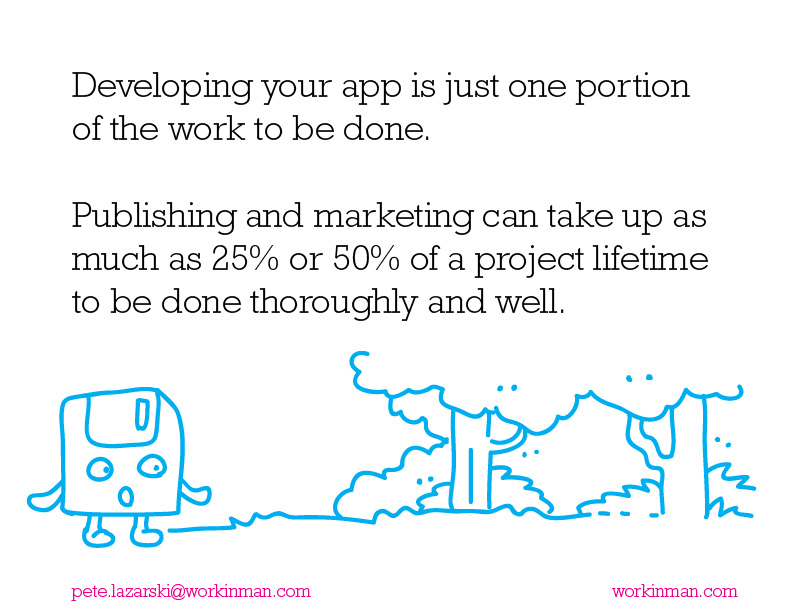
Remember that developing your app is just one portion of the work to be done.
Publishing and marketing can take up as much of 25% or 50% of a project lifetime to be done thoroughly and well. Once your app exists on one platform you could continue expanding its reach by porting it to other platforms. Marketing can be done in many ways from maintaining social media accounts, working with your marketplace to request premium visibility in their store, to actually purchasing advertising.
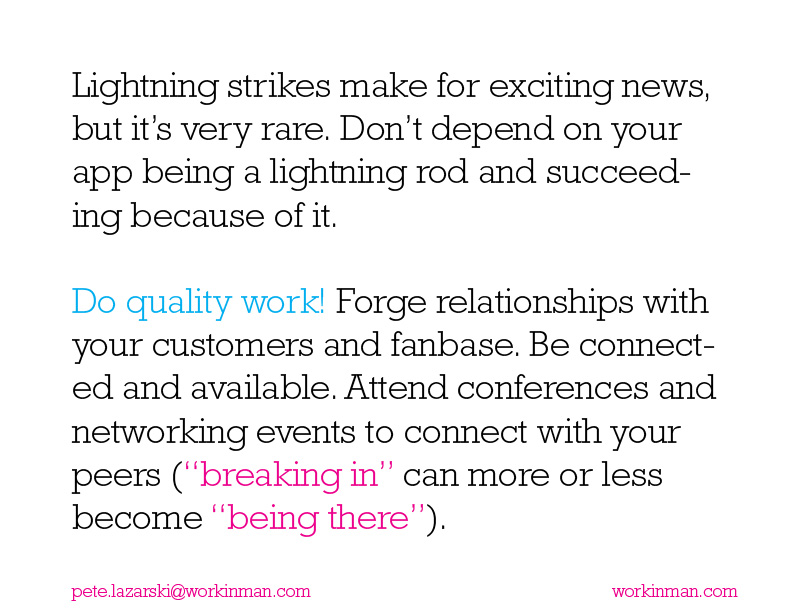
Lightning strikes make for exciting news, but it’s very rare. Don’t depend on your app being a lightning rod and succeeding because of it. Every news outlet loves to tell that “indie success story”, but this doesn’t do credit to the majority of other developers out there who have developed a portfolio of quality games and a dedicated fanbase over years.
Do quality work! Forge relationships with your customers and fan base. Be connected and available. Attend conferences and networking events to connect with your peers. I often hear people asking the question of “How to break in to industry X,” whether it’s indie games or comics. To me it seems like “breaking in” can more or less become “being there”.
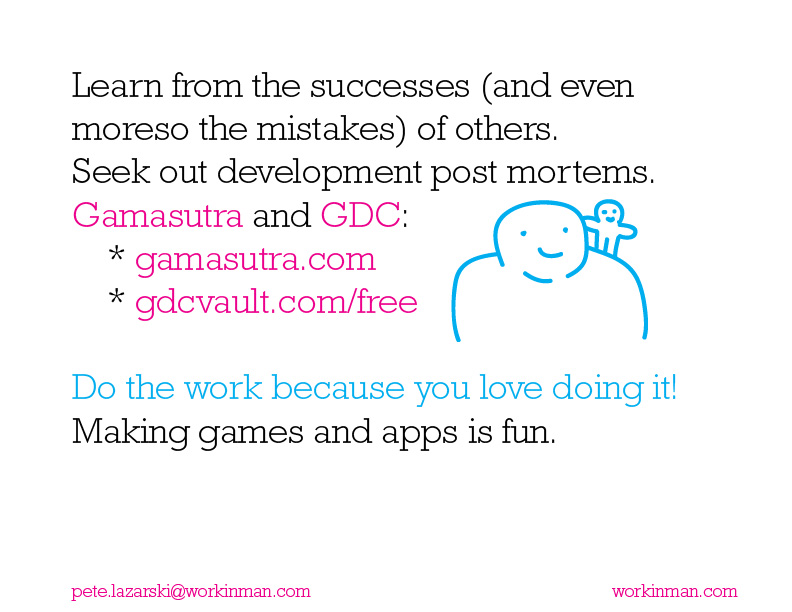
Learn from the successes (and even more so the mistakes) of others. Seek out development postmortems and other industry relevant articles. Gamasutra.com and gdcvault.com/free are excellent places to begin. There are plenty of giants available for you to stand on their shoulder for a moment if you need.
Above all else, do the work because you love doing it! Making games and apps is fun.
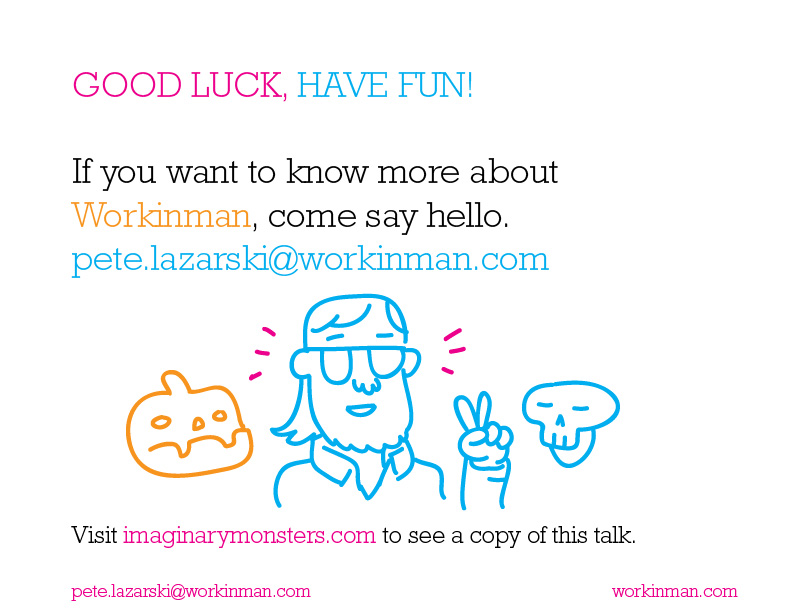
Good luck, have fun!
